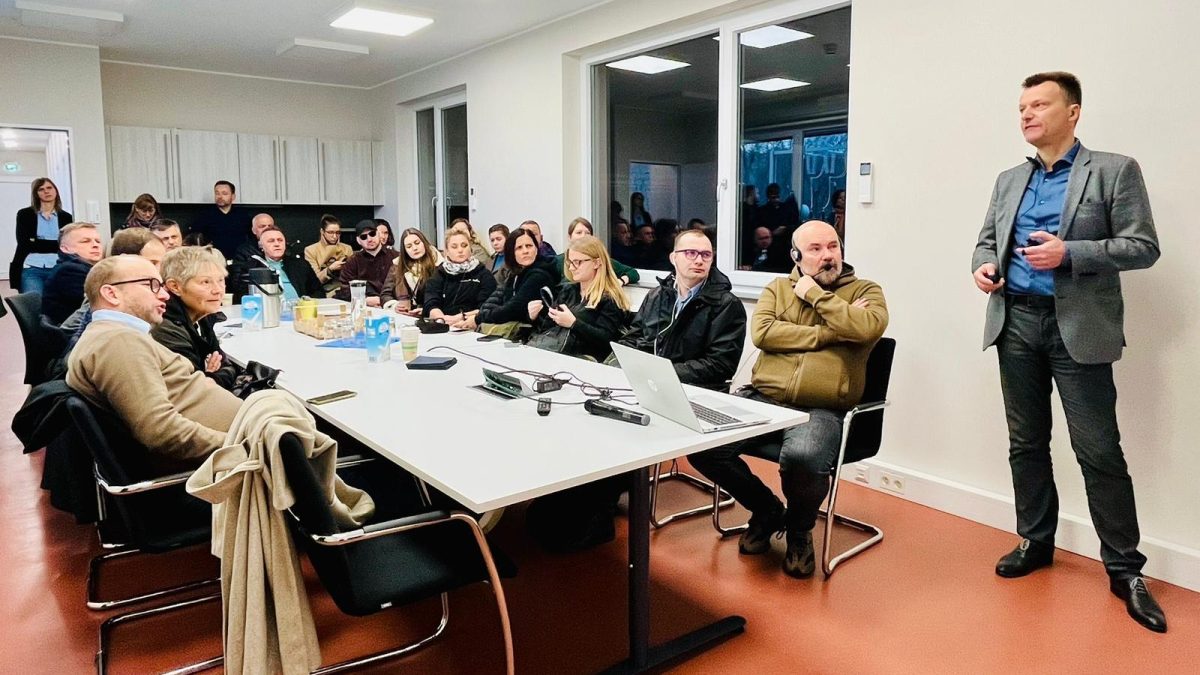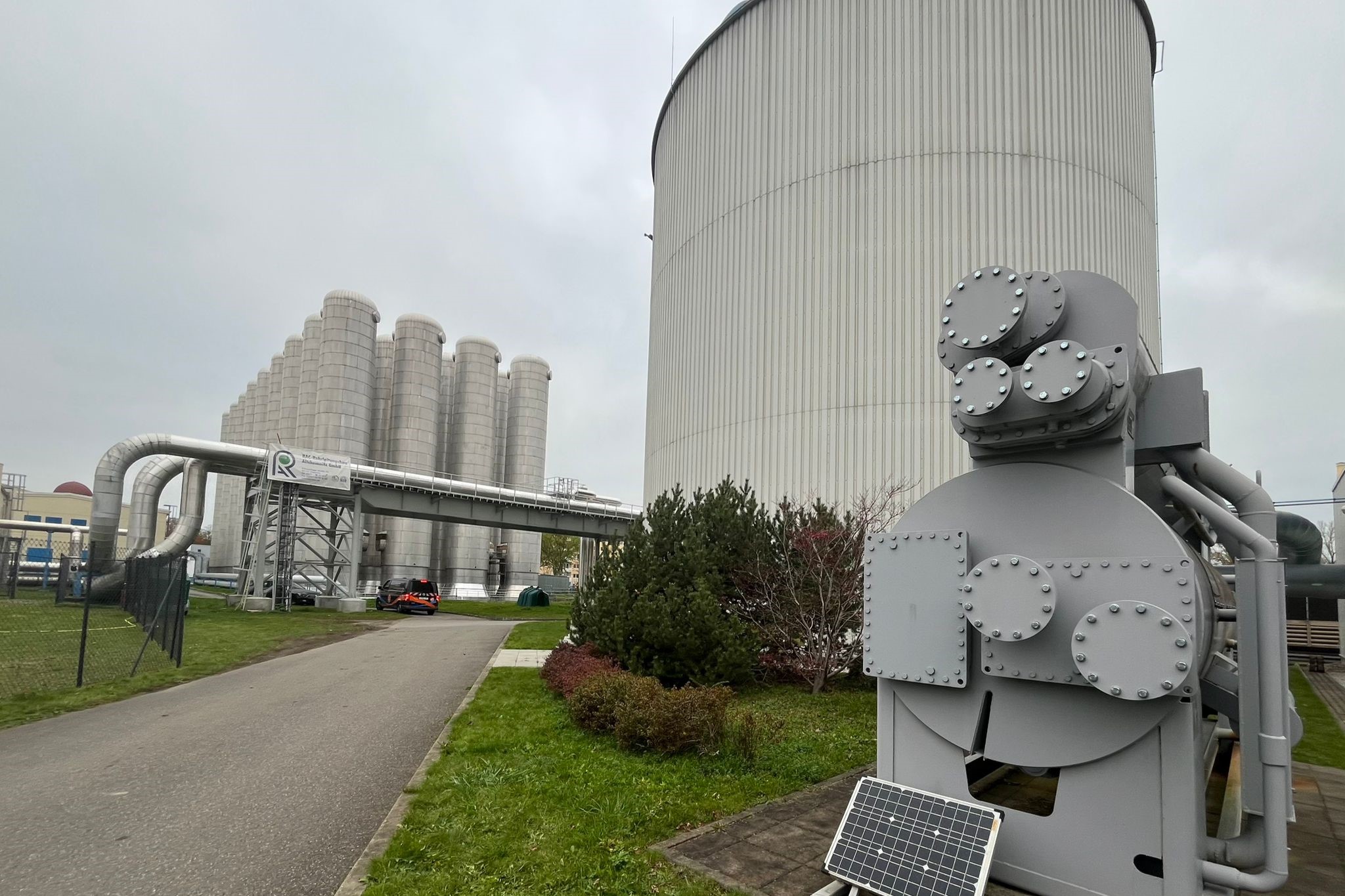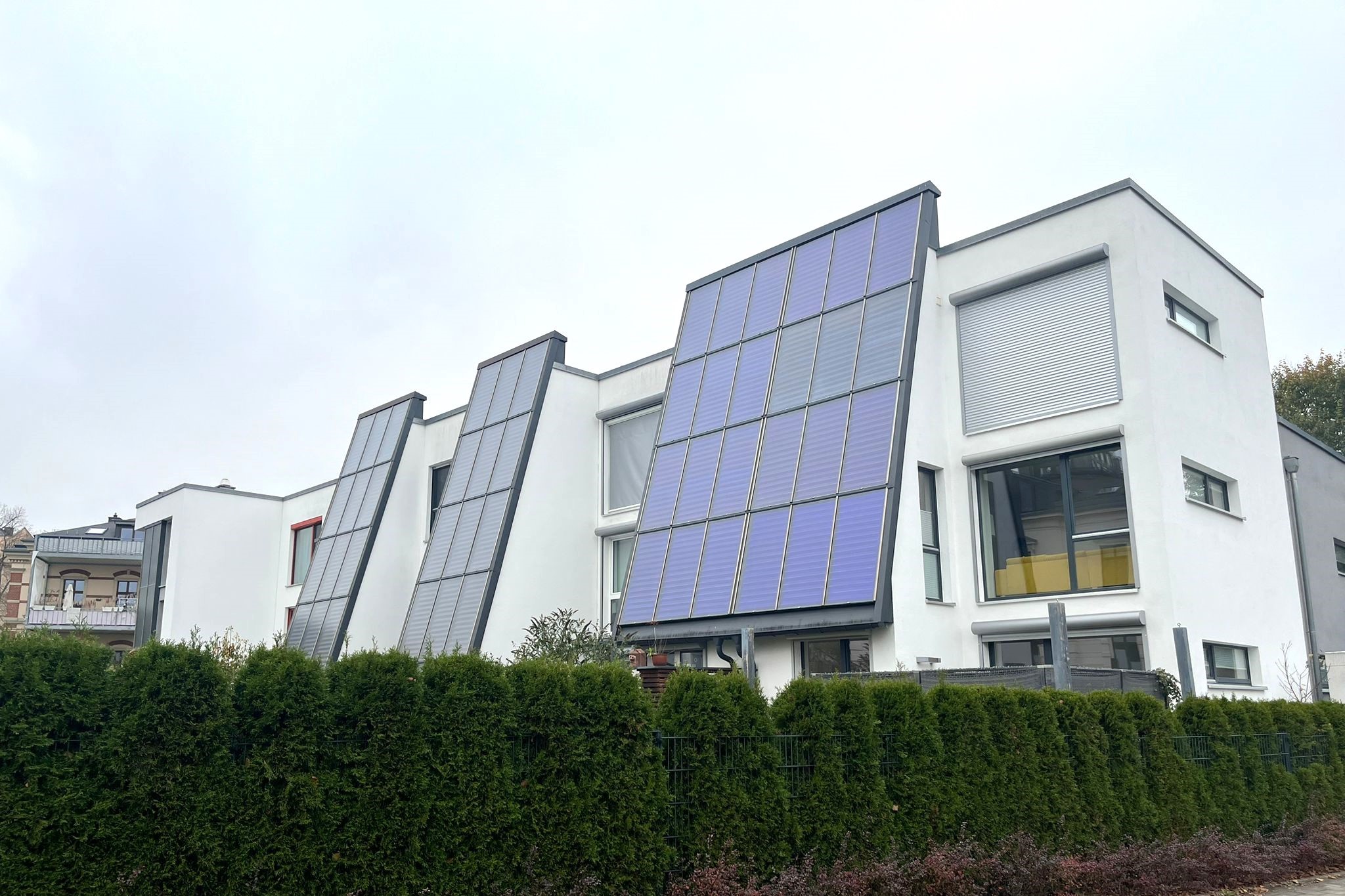 Representatives from across Europe gathered in Chemnitz, Germany, for a study visit with the purpose of advancing knowledge, sharing best practices and fostering international collaboration on energy transition and climate neutrality. The event hosted participants from Croatia, Hungary, Poland and Romania, representing municipalities, energy organizations and institutes. Over two days, they explored innovative projects, exchanged expertise and engaged in interactive activities based on the Ready4NetZero Guide to Developing Local Climate Neutral Strategies.
Representatives from across Europe gathered in Chemnitz, Germany, for a study visit with the purpose of advancing knowledge, sharing best practices and fostering international collaboration on energy transition and climate neutrality. The event hosted participants from Croatia, Hungary, Poland and Romania, representing municipalities, energy organizations and institutes. Over two days, they explored innovative projects, exchanged expertise and engaged in interactive activities based on the Ready4NetZero Guide to Developing Local Climate Neutral Strategies.
Day 1: Exploring Chemnitz's Energy and Climate Initiatives
The study visit began with a warm welcome from the Chemnitz municipality, providing a comprehensive overview of the city's climate strategy. The representatives highlighted Chemnitz's ambitious objectives, including a 75% reduction in greenhouse gas emissions by 2030 and the achievement of climate neutrality by 2040.
 Participants explored innovative projects such as the Brühl District's low temperature district heating system. This state of the art infrastructure minimizes energy loss, integrates renewable energy sources and ensures sustainable heat supply - a model of urban energy efficiency. Discussions highlighted the importance of local adaptation, with solutions tailored to specific challenges, such as using biomass from biological waste ad leveraging existing urban infrastructure for renewable energy installations.
Participants explored innovative projects such as the Brühl District's low temperature district heating system. This state of the art infrastructure minimizes energy loss, integrates renewable energy sources and ensures sustainable heat supply - a model of urban energy efficiency. Discussions highlighted the importance of local adaptation, with solutions tailored to specific challenges, such as using biomass from biological waste ad leveraging existing urban infrastructure for renewable energy installations.
Another focal point was Chemnitz’s cycling infrastructure. The Stadt Radeln campaign and real time data collection exemplified how integrated transport planning can reduce emissions while promoting active mobility. Participants discussed parallels with their cities and shared ambitions for enhancing sustainable transport.
Interactive Exchange through World Café
A key feature of the first day was the World Café session, an interactive format that facilitated city to city knowledge exchange. Divided into thematic groups, participants discussed energy, mobility, urban greening and waste management, inspired by the R4NZ Guide. They shared their cities’ current practices, future ambitions and knowledge gaps, leading to a rich exchange of ideas. The collaborative nature of the session underscored the importance of partnerships and mutual learning in tackling global challenges.
Day 2: Innovation in Practice
 The second day brought the delegation to groundbreaking projects that exemplified Chemnitz’s innovative spirit. A highlight was the Eins battery storage facility, which plays a critical role in stabilizing the power grid and enhancing energy efficiency. With a capacity equal to approximately four million AA batteries, this facility supports the integration of variable renewable energy sources like wind and solar.
The second day brought the delegation to groundbreaking projects that exemplified Chemnitz’s innovative spirit. A highlight was the Eins battery storage facility, which plays a critical role in stabilizing the power grid and enhancing energy efficiency. With a capacity equal to approximately four million AA batteries, this facility supports the integration of variable renewable energy sources like wind and solar.
Another visit took participants to the solar houses developed by FASA AG, a pioneer in energy-efficient housing. These homes achieve nearly 100% solar coverage, demonstrating the feasibility of self-sufficient, sustainable living. The group also toured the “Zwergenhaus” day-care, where an innovative biomass heating system illustrates how smaller scale projects can make significant progress in CO2 reduction.
Collaboration and Inspiration
Throughout the visit, participants actively engaged with presenters, delving into technical details and discussing the adaptability of these projects in their own municipalities. Questions ranged from the sourcing of biomass to the scalability of solar energy solutions and the role of hydrogen in public transport. The open exchange of ideas not only enriched understanding but also laid the groundwork for future collaborations.
Looking Ahead
The Chemnitz study visit was more than an educational tour; it was a platform for building connections, sparking innovation and reaffirming the shared commitment to a sustainable future. As participants returned home, they carried with them insights into pioneering technologies, strategies for community engagement and inspiration to drive the energy transition in their regions.
Through this visit, the consortium reinforced its vision: to create resilient cities that lead the way toward climate neutrality. By integrating cutting edge solutions, fostering partnerships and embracing bold ambitions, these municipalities are eager to contribute meaningfully to a cleaner, greener Europe.
Ready4NetZero is a EUKI funded project coordinated by the Polish Network “ENERGIE CITÉS”, with a consortium formed of the Ecologic Institute from Germany, ENERGIAKLUB from Hungary, REGEA from Croatia and Energy Cities Romania. Ready4NetZero aims to support cities from the participating countries in developing and implementing 2050 climate neutrality strategies and seeks to do this by building capacity, knowledge and skills among local leaders, municipal staff and local stakeholders, facilitating experiences exchange and dialogue between local authorities.





